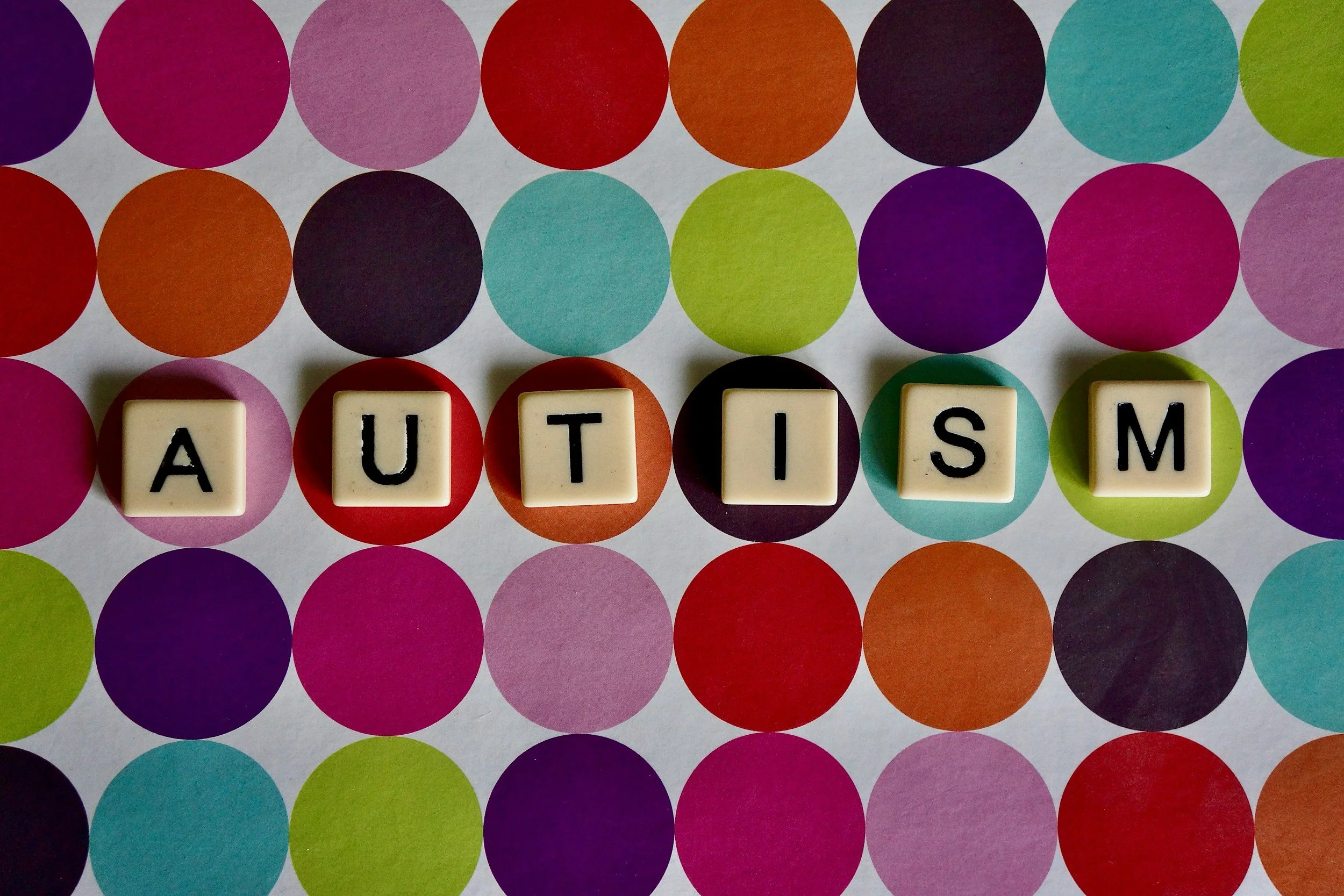What causes autism?
Secretary of Health and Human Services Robert F. Kennedy (RFK) and United States President Donald Trump recently formally declared that Tylenol and vaccines are major causes of autism. Trump warned pregnant women to avoid taking Tylenol, which is one of the only medications that previously had been deemed safe to take for pregnant people to take to alleviate pain. Trump and RFK cited a Harvard study to back up their claims. RFK also commented that some groups, such as the Amish, have no autistic children at all. As a mother of autistic children myself, this is a topic that is especially important to me. Let’s take a closer look at the research.
Scrabble tiles spell out the word “autism” on a background of colorful circles
I spent an entire 12 week class in my Master’s program learning how to distinguish good studies from misleading ones. Not all studies are created equally. When looking at studies or reports, here are some red flags to look for: small sample sizes (such as only 12 kids being studied), limited demographic sample (such as only white kids, or only kids that come from wealthy families, or only 8 year olds), studies that are older (studies published within the last 5 years are more reliable), studies that start with the goal to prove a specific outcome instead of being open to different possibilities, and studies that only use anecdotal evidence (stories, interviews, personal experiences) instead of data carefully documented over time. Other red flags include being sponsored by a group who will benefit by the study having a certain outcome.
Green flags look like: the study sample is large and contains a wide variety of demographics. The study has a sample group that is tested and is compared with a second group of similar demographics that receives no different treatment (such as being put on a waitlist) and the outcomes of the two groups are carefully documented at the same times. While personal stories are powerful and sometimes the only evidence we have on certain topics (also known as qualitative studies), research that carefully documents data (aka quantitative studies) are typically more reliable.
The Harvard study that RFK and Trump refer to was published on August 15, 2025 in BMC Environmental health and the senior author is the dean of faculty at Harvard T.H. Chan School of Public health. The study was led by the Icahn School of Medicine at Mount Sinai. The researchers looked at results from 46 previous worldwide studies that investigated the potential link between use of acetaminophen (the primary ingredient of Tylenol) and subsequent neurodevelopmental disorders (NDDs) in the children born to those women.
Given just this information, this study looks legitimate, so let’s dive deeper. The study used a method called the Navigation Guide to analyze already existing literature—meaning, even though the study was published in 2025, it was based on older studies, not new information. The Navigation Guide claims to review each study for bias and quality. The researchers alleged to have considered factors such as the mother’s age at the time of the child’s birth, breastfeeding, body mass index, preterm birth, delivery type, mother’s education level, mother’s race/ethnicity, use of illicit drugs, smoking before or during pregnancy, alcohol use, birth weight, child age and sex, marital status, stress during pregnancy and whether the mother had a fever during the pregnancy.
A box of Tylenol sits on a nightstand next to a bottle of water
While this appears thorough, I am noticing some significant missing factors: did either birth parent ever receive a diagnosis of autism or other NDD? Did either birth parent present with NDD markers? Of the children who were diagnosed with autism, were they all diagnosed using the same test?
Many people with autism and ADHD struggle with a co-occurring condition known as Sensory Processing Disorder (SPD). SPD often presents as high sensitivity to sensory input. In other words, many autistic people are extra sensitive to lights, sounds, textures, tastes, and smells. Many people with Autism and ADHD also experience higher levels of illnesses. Because Tylenol is the only recommended pain medication for pregnant women, it is not a stretch to assume that women with autism and/or ADHD, whether diagnosed or not, take Tylenol more often than neurotypical women. Autism and ADHD are highly genetic, and so these same women who are neurodivergent, who took more Tylenol during pregnancy, end up having children who share a similar neurotype.
Correlation does not mean causation. The presence of Tylenol does not automatically contribute to Autism. What’s more, Tylenol was invented in 1955. Autism was first diagnosed in 1943, before Tylenol was invented.
Going back to the red flags listed at the beginning, another deep dive reveals some concerns. When RFK and Trump came out with their proclamation, they indicated that using leucovorin (a form of folic acid) can alleviate autistic symptoms (source: hhs.gov). However, there is currently no conclusive evidence that leucovorin to support this claim. The claim that the Amish have no autistic members is only backed up by anecdotal (word-of-mouth) evidence, as Amish children are not routinely screened for autism. In 2010 a study did screen an Amish community for the presence of autism, and found that 1 in 271 Amish children did indeed meet the diagnostic criteria for autism. (Please note that in 2013 the definition of autism was broadened to include conditions like Aspergers and so autism screenings today result in a higher number of autism cases than back then.)
In conclusion, the current claims of linking Tylenol and autism need much more thorough research to be backed up. Many studies show a strong genetic connection for NDD’s—neurodivergence tends to run in families. Please consult your doctor if you have concerns about autism or Tylenol.

